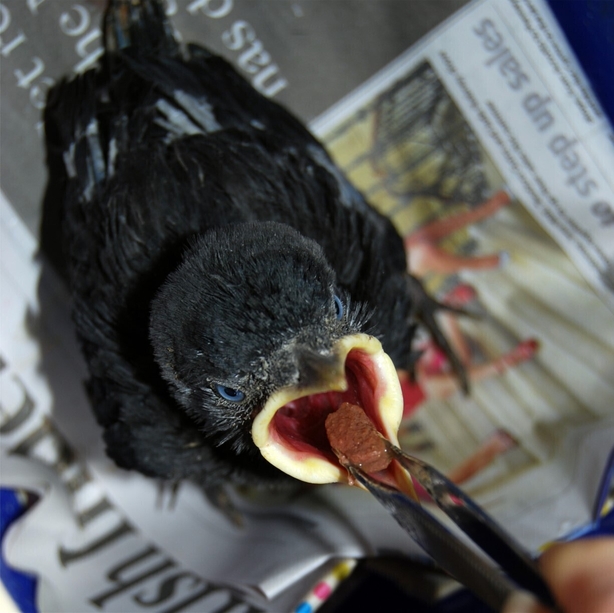With fledgling season approaching, when young birds will be leaving their nests and preparing to spread their wings, experts have urged people not to interfere.
The Dublin Society for the Prevention of Cruelty to Animals issued advice, informing the public of what they should expect to see.
Birds develop in the nest, reaching nearly their full size.
Once they are ready, they jump from the nest, gliding to the ground.
The birds' parents do not feed them when they’re on the ground – encouraging them to begin flying with calls to join them to get food.
Depending on the bird species, fledglings can spend anything from a few hours to a few days on the ground.
Initially, they will remain still, or try to hide, before progressing to jumping up and down, trying to fly.
The DSPCA is urging people not to move birds if they come across them – unless they are somewhere very dangerous, such as in the middle of a road. In such instances, the bird should only be moved a short distance.
People should not feed fledglings, or lift them onto walls or trees.
If there are predators such as cats nearby, try to scare them away, rather than moving the bird.

However, if a bird has clear signs of injury, such as a wing that looks limp and broken, or a damaged leg, or if they have open wounds, they may need assistance.
Furthermore, birds who do not have feathers, those with fluffy down or a lot of bald areas, may have accidentally left the nest too early.
Birds that are obviously injured can be placed in a box or basket. The DSPCA can be contacted at info@dspca.ie, or people could bring the bird to a local vet.

